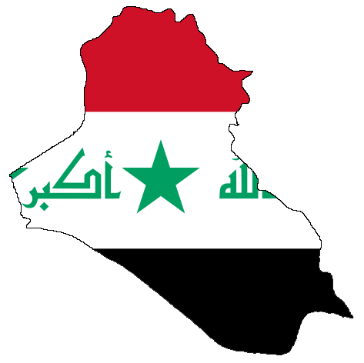
Defeating the Daesh in Iraq – time to face reality
Last week I spoke on a number of panels at a conference in Riga Latvia regarding the future of Iraq and how to fully defeat Daesh (also known as ISIS).
The conference “TOWARD PEACE AND RECONCILIATION IN IRAQ“, heard from U.S. policy makers, European politicians, Iraqi leaders, Arab diplomats as well as a wide range of experts and journalists.
Five key issues and challenges were raised throughout the conference:
- The Iraq political system is broken
The political system in Iraq is not working for the whole Iraqi people.
The constitution and state structures are seen as alienating factors for many in Iraq. This does not mean the country will split up as many have suggested, but it does mean that these structures and system needs to be fully reviewed by all the Iraqi people.
- Daesh is a symptom
The growth of Daesh/ ISIS in Iraq is fully due to the issue of the broken political system.
Many of the Sunni tribes have faced not just political harassment, but far much worse at the hands of the central government and linked militias. This has included mass imprisonment, torture and even cases of mass murder.
It is in this way – the Sunni tribes and people of the area have been given two clear choices. The choice of Baghdad with all the above mass violence and mass oppression. And a choice of a group that although conducts targeted violence, is part of the region, that in someway offers liberation from the problems from Baghdad.
This group – the Daesh – offers a corruption of the people of the area, but for many is a better choice. As such, the Daesh is the symptom of the breakdown of the political system in Iraq.
- Economic reform is vital
Iraq has the second largest proven oil reserves in the world, and yet remains a very poor country. According to Mundi, Iraq’s largely state-run economy is dominated by the oil sector, which provides more than 90% of government revenue and 80% of foreign exchange earnings. Iraq in 2012 boosted oil exports to a 30-year high of 2.6 million barrels per day, a significant increase from Iraq’s average of 2.2 million in 2011. As such the reduction in the price of oil (almost 50% over the last year) has resulted in the collapse of Iraq’s state income.
Iraq oil infrastructure remains weak, including just a seven-day storage capacity. The lack of storage capacity has meant that on many occasions drilling has had to be halted when export supply is suspended.
Vast corruption and a lack of other private sector development has compounded the issue. This has all resulted in a very weak economy, further alienating many in Iraq.
- Iran is a malign force
The Iranian push for sectarian political parties with financial & vast military support for Shia-militias has had a vast malign effect on the destabilization of Iraq. This has increased substantial sectarian problems all over Iraq.
Once the Iranian nuclear program is fully contained with an agreement with the P5+1, Western and Arab powers will be able to counter Iran’s malign force throughout the region.
- Reconciliation needs to be taken seriously
All communities in Iraq understand the need for reconciliation. This though cannot happen without a full economic, social and political review of the country.
Each community has suffered over many years. All acknowledge this, but are caught up in a blame-game, which is heading into a downward spiral of despair.
Each community needs to fully represented and also given wide economic and social opportunities.
Only this way can a serious reconciliation process begin.
The United States and its allies in Europe and the Middle East need to appreciate all these challenges in Iraq in order fully defeat Daesh and help to create to a stable and peaceful Iraq.
A first step will be to understand the reality of the political dynamism in Iraq – and include key Sunni leaders in a full discussion in how to fully defeat Daesh and Iraq’s future.







[…] Defeating the Daesh in Iraq—time to face reality Paul Hamill Last week I spoke on a number of panels at a conference in Riga Latvia regarding the future of Iraq and how to fully defeat Daesh (also known as ISIS). The conference “TOWARD PEACE AND RECONCILIATION IN IRAQ“, heard from U.S. policy makers, European politicians, Iraqi leaders, Arab diplomats as well as a wide range of experts and journalists. […]
[…] Defeating the Daesh in Iraq—time to face reality […]